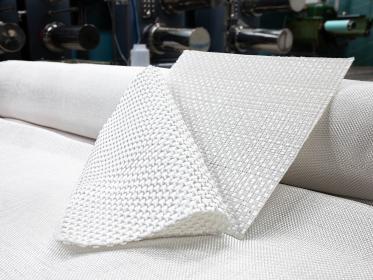Fraunhofer CCPE: Technische Produktinnovationen für eine zirkuläre Kunststoffwirtschaft
Ziel des Fraunhofer Cluster of Excellence Circular Plastics Economy CCPE ist es, die Wertschöpfungskette Kunststoff zirkulär zu gestalten. Sechs Fraunhofer-Institute erforschen am Beispiel Kunststoff, wie der Wandel von einer linearen zur einer zirkulären Kunststoffwirtschaft gelingen kann. Auf der ACHEMA in Frankfurt, der internationalen Messe für die Prozessindustrie, stellt das Fraunhofer CCPE vom 22. bis zum 26. August zwei technische Produktinnovationen und ein Bewertungstool für Unternehmen der Circular Economy vor.
Seit 2018 erforschen die sechs Fraunhofer-Institute — IAP, ICT, IML, LBF, IVV und UMSICHT – wie eine nachhaltige Transformation einer gesamten Wertschöpfungskette unter Prinzipien der Circular Economy erfolgen kann. Durch einen Multi-Stakeholder-Ansatz können FuE-Kompetenzen gebündelt werden, um Produkte zirkulär zu gestalten, passende Geschäftsmodelle zu entwickeln und End-of-Life Verluste bei Kunststoffabfällen zu reduzieren. Auf der ACHEMA werden die folgenden Projekte ausgestellt:
- Faserverstärktes Monomaterialkomposit aus PLA
Biobasierte Kunststoffe werden zunehmend für technisch anspruchsvolle Einsatzbereiche z.B. in der Automobil- und Textilindustrie nachgefragt. Zwei zentrale Anforderungen sind dabei ihre Stabilität und ihre Recyclingfähigkeit. Forschende der Fraunhofer-Institute IAP und ICT entwickelten innovative PLA-basierte Monomaterial-Komposite (Organobleche), die technische Applikationen adressieren und insbesondere mit Hinblick auf die Rezyklisierbarkeit einen Beitrag zur Umsetzung der Sustainable Development Goals der UN leisten können. - Optisch und mechanisch verbesserte Folienrezyklate
Bei der Herstellung von Folien zählt neben den mechanischen Eigenschaften besonders der visuelle Eindruck. Es dürfen keine Fehlstellen in Form von Stippen, Fischaugen oder Abrissen auftreten, die insbesondere bei Verwendung von Rezyklaten zu Problemen führen können. Die direkte Verwendung eines Folienregranulats führt jedoch häufig zu vielen Abrissen während der Folienherstellung, die zudem fatale Auswirkungen auf die mechanischen Materialeigenschaften haben. Durch die Zugabe einer geeigneten Additivformulierung konnte die Folienqualität nun signifikant verbessert werden.
Ist ein Produkt reif für die Circular Economy?
Weiterhin präsentieren die Forschenden nun auf der ACHEMA das webbasierte Tool CRL®, mit dem Unternehmen den Reifegrad von Produkten oder Produktsystemen im Hinblick auf die Circular Economy selbst bewerten können. Es prüft, inwieweit ein Produkt die Strategien der Kreislaufwirtschaft in den Bereichen Produktdesign, Produktdienstleistungssystem, End-of-Life-Management und Kreislaufwirtschaft bereits berücksichtigt und wo noch Verbesserungspotenzial besteht.
Fraunhofer CCPE Fraunhofer Cluster of Excellence Circular Plastics Economy Automobil
Fraunhofer-Institut für Umwelt-, Sicherheits- und Energietechnik UMSICHT









